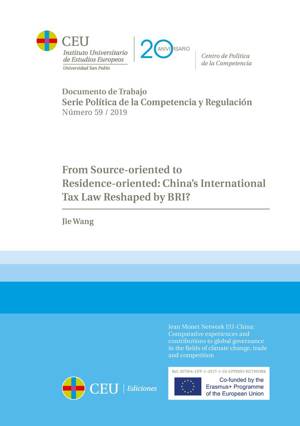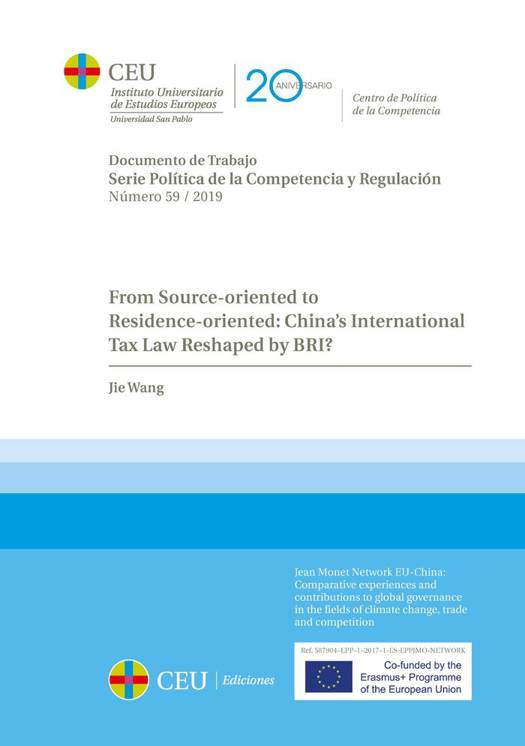
Door een staking bij bpost kan je online bestelling op dit moment iets langer onderweg zijn dan voorzien. Dringend iets nodig? Onze winkels ontvangen jou met open armen!
- Afhalen na 1 uur in een winkel met voorraad
- Gratis thuislevering in België vanaf € 30
- Ruim aanbod met 7 miljoen producten
Door een staking bij bpost kan je online bestelling op dit moment iets langer onderweg zijn dan voorzien. Dringend iets nodig? Onze winkels ontvangen jou met open armen!
- Afhalen na 1 uur in een winkel met voorraad
- Gratis thuislevering in België vanaf € 30
- Ruim aanbod met 7 miljoen producten
Zoeken
€ 6,95
+ 13 punten
Omschrijving
The Belt and Road Initiative (BRI), as one of the most remarkable events of international economic cooperation nowadays, has noticeable implications for many areas of study. This article is to explore how BRI, an initiative proposed and championed by China, has influenced China's international tax system. To answer the question, the article sets two poles for depicting a country's position of international taxation, namely, the source-oriented tax system and residence-oriented tax system. Based on that, this article puts forward the proposition that there is a trend that China's international tax system is transforming from source-oriented to residence-oriented. In the end, the article is concluded by rendering the proposition as tenable
Specificaties
Betrokkenen
- Auteur(s):
- Uitgeverij:
Inhoud
- Aantal bladzijden:
- 24
- Taal:
- Engels
Eigenschappen
- Productcode (EAN):
- 9788417385460
- Verschijningsdatum:
- 7/11/2019
- Afmetingen:
- 210 mm x 295 mm
- Gewicht:
- 90 g

Alleen bij Standaard Boekhandel
+ 13 punten op je klantenkaart van Standaard Boekhandel
Beoordelingen
We publiceren alleen reviews die voldoen aan de voorwaarden voor reviews. Bekijk onze voorwaarden voor reviews.











